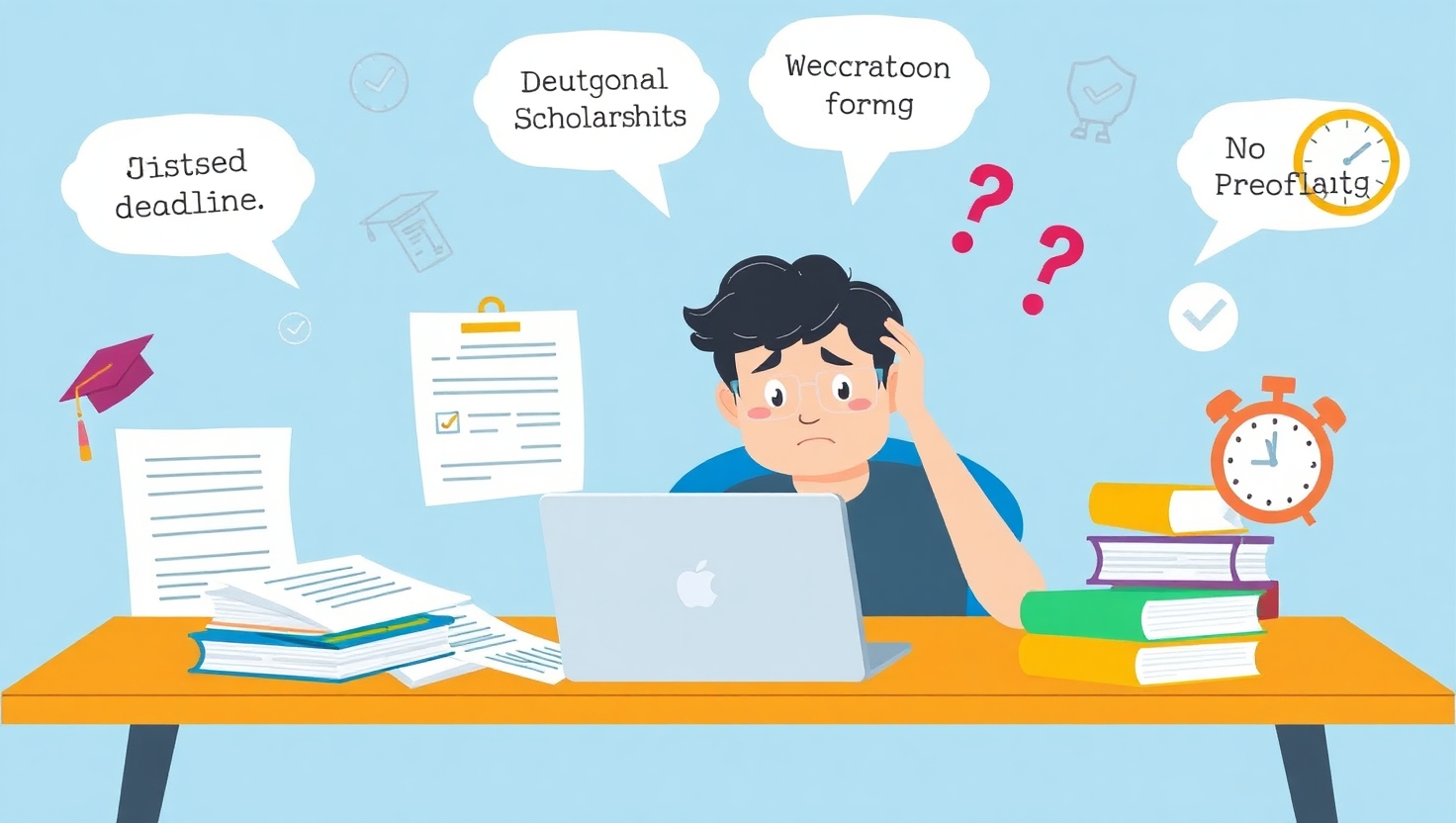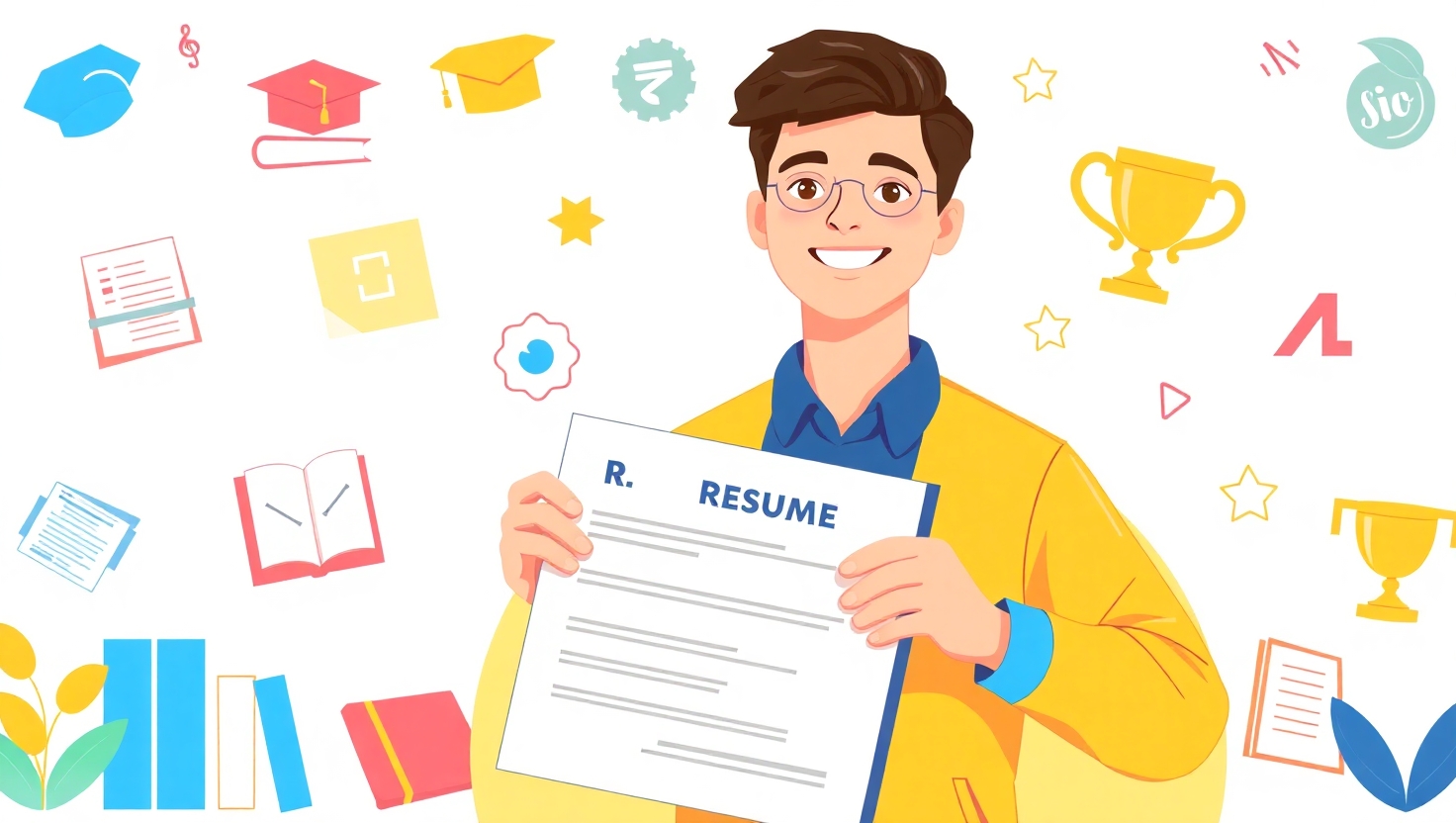1. Missing Deadlines
One of the most frequent mistakes is applying too late.
- Why it matters: Many scholarships receive thousands of applications. Submitting late means automatic disqualification.
- How to avoid it:
- Keep a calendar with all deadlines.
- Start applications at least 4–6 weeks before the due date.
- Set reminders on your phone.
📌 Pro tip: Apply early—some scholarships close once they receive enough applicants.
2. Not Following Instructions
Many students ignore simple requirements like word count, essay format, or requested documents.
- Example: If the scholarship asks for a 500-word essay and you submit 1,200 words, you may be disqualified.
- How to avoid it:
- Read the guidelines carefully.
- Double-check requirements (file format, number of recommendations, etc.).
- Create a checklist before submitting.
👉 Remember: If you can’t follow instructions, committees assume you won’t follow through academically.
3. Submitting a Generic Essay
Scholarship panels can spot copy-paste essays instantly.
- Why it matters: A generic essay shows little effort and doesn’t connect with the scholarship’s mission.
- How to avoid it:
- Customize your essay for each application.
- Use the provider’s values and goals in your response.
- Share personal stories that align with the scholarship’s purpose.
📌 Example: If it’s a STEM scholarship, highlight your science projects or research goals—not just “I love learning.”
4. Ignoring Grammar and Spelling
Typos and sloppy writing leave a poor impression.
- Why it matters: Committees expect professionalism. A poorly written essay suggests lack of seriousness.
- How to avoid it:
- Use spell check tools like Grammarly.
- Ask a teacher or mentor to review.
- Read your essay aloud to catch awkward phrasing.
👉 Presentation matters as much as content.
5. Failing to Highlight Achievements
Many students undersell themselves out of modesty or lack of confidence.
- Why it matters: The committee won’t know your strengths unless you tell them.
- How to avoid it:
- List academic, extracurricular, and community achievements.
- Use specific examples with measurable results.
- Show both leadership and impact.
📌 Example: Instead of “I volunteered at a shelter,” write “I organized a food drive that provided 2,000 meals for families in need.”
6. Applying for Too Few Scholarships
Some students only apply to one or two “dream” scholarships.
- Why it matters: Scholarship competition is fierce, and rejection is common.
- How to avoid it:
- Apply to multiple scholarships—big and small.
- Don’t ignore local or niche opportunities (less competition).
- Set a goal of applying to at least 10–15 scholarships each cycle.
👉 Think of it like fishing—the more lines you cast, the better your chances.
7. Forgetting to Proofread Applications
Many students rush through forms and make careless mistakes.
- Why it matters: Incorrect details (wrong GPA, missing documents) can disqualify you instantly.
- How to avoid it:
- Review every section before submitting.
- Have a parent, teacher, or friend double-check.
- Print out the application to catch errors more easily.
📌 Accuracy shows professionalism.
8. Overlooking Small Scholarships
Most students chase big scholarships ($10,000+), ignoring smaller ones ($500–$2,000).
- Why it matters: Small scholarships add up and are often less competitive.
- How to avoid it:
- Apply to both large and small opportunities.
- Use small awards to cover books, travel, or living expenses.
- Remember: $1,000 here, $2,000 there—it adds up fast.
👉 Many students fund their studies entirely by stacking smaller scholarships.
9. Weak or Missing Recommendation Letters
A poor recommendation—or none at all—hurts your chances.
- Why it matters: Recommendations validate your character, leadership, and achievements.
- How to avoid it:
- Ask teachers, mentors, or employers who know you well.
- Give them at least 4 weeks to write.
- Provide your resume and essay draft so they can write specific letters.
📌 Strong recommendations should tell stories, not just “He/she is a good student.”
10. Not Showing Passion and Future Goals
Committees want to fund students with clear vision—not just high grades.
- Why it matters: Passion and purpose make you stand out.
- How to avoid it:
- Share your long-term goals (career, community impact, research).
- Explain how the scholarship will help you achieve them.
- Show commitment to giving back.
👉 Example: “This scholarship will help me become a teacher and return to my village to build a community learning center.”
Bonus Mistakes to Avoid
- Copying essays from the internet (plagiarism = disqualification).
- Leaving sections blank.
- Not backing up your application files.
- Ignoring eligibility criteria (e.g., GPA or nationality restrictions).
- Applying at the last minute, leading to rushed errors.
Final Thoughts
Applying for scholarships is not just about filling out forms—it’s about presenting your best self. Avoiding these 10 common mistakes can make the difference between rejection and securing full funding.
To recap:
- Respect deadlines.
- Follow instructions.
- Customize every essay.
- Check grammar and spelling.
- Showcase achievements.
- Apply widely.
- Proofread carefully.
- Don’t ignore small awards.
- Secure strong recommendations.
- Show passion and goals.
👉 By avoiding these pitfalls, you’ll dramatically increase your chances of winning scholarships in 2025 and beyond.
Remember: Every successful scholar was once just an applicant—your turn is next. 🌟







Leave a Reply